Презентація на тему «Ancient Egipt»
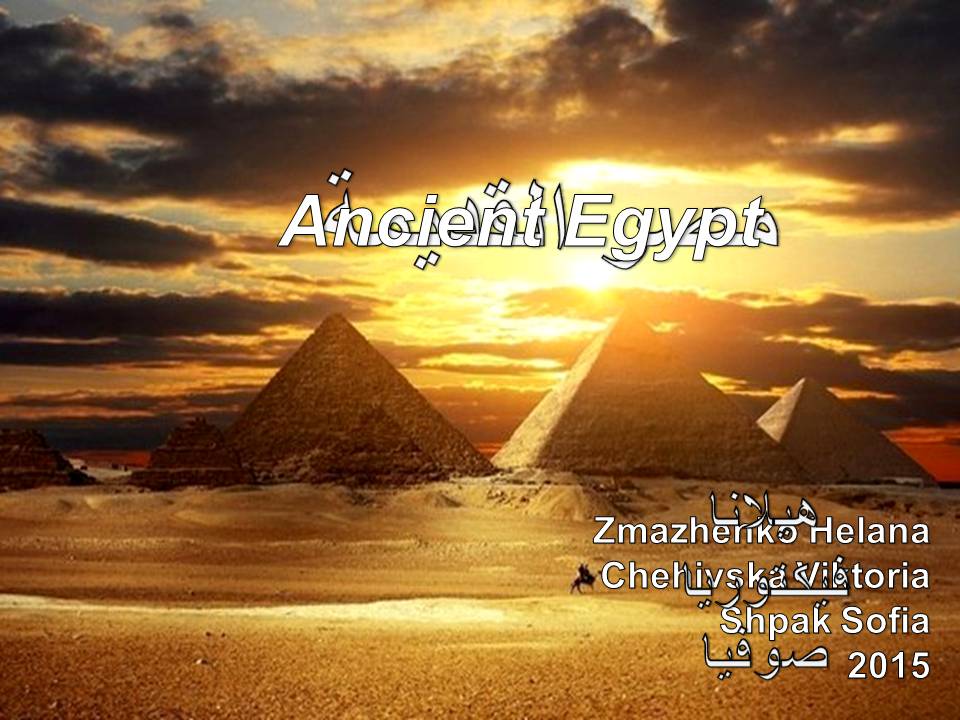
مصر القديمة
Zmazhenko Helana
Chehivska Viktoria
Shpak Sofia
2015
Ancient Egypt
هيلانا
فيكتوريا
صوفيا
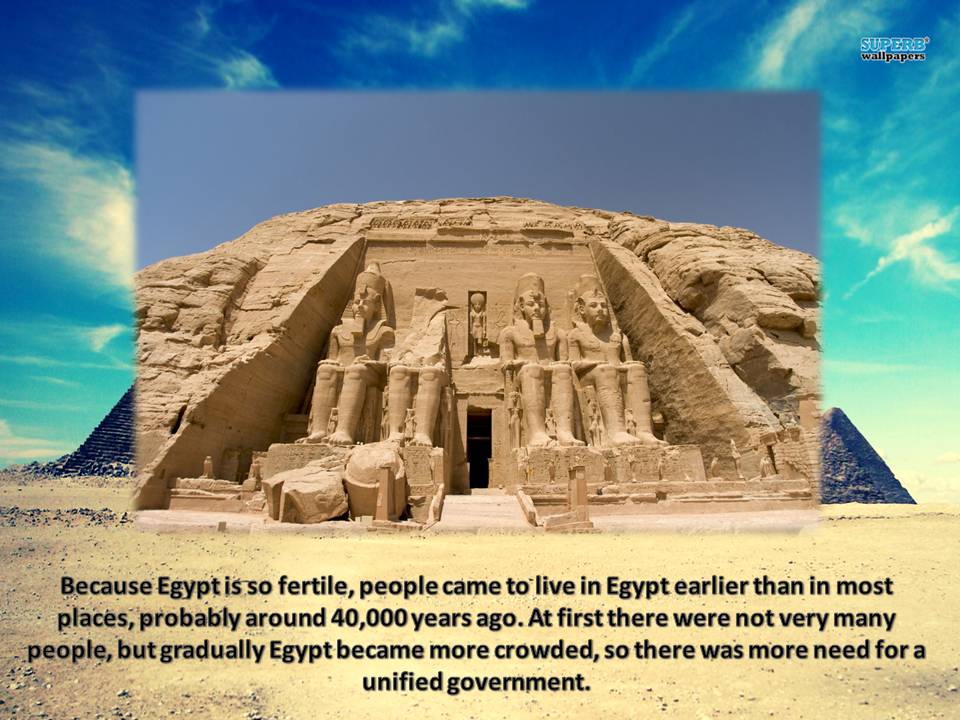
Because Egypt is so fertile, people came to live in Egypt earlier than in most places, probably around 40,000 years ago. At first there were not very many people, but gradually Egypt became more crowded, so there was more need for a unified government.
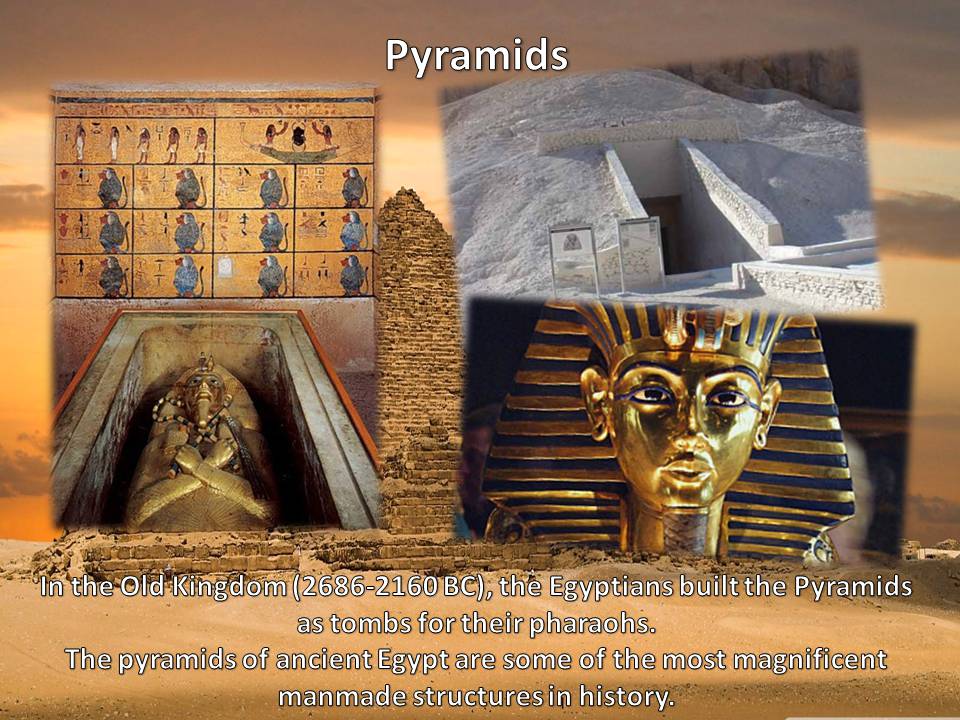
In the Old Kingdom (2686-2160 BC), the Egyptians built the Pyramids as tombs for their pharaohs.
The pyramids of ancient Egypt are some of the most magnificent manmade structures in history.
Pyramids
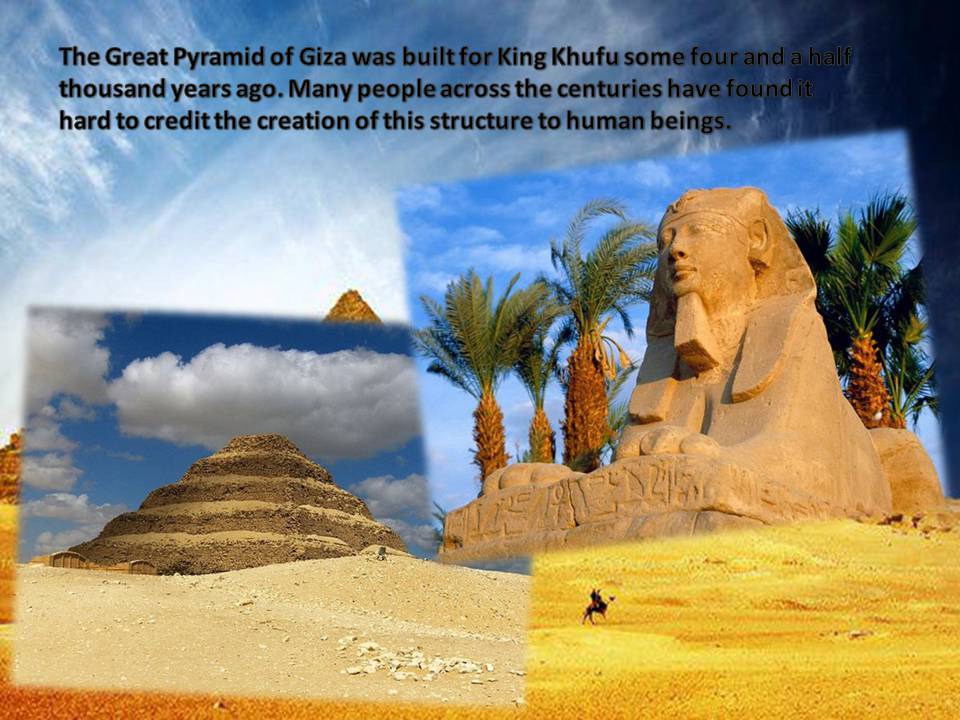
The Great Pyramid of Giza was built for King Khufu some four and a half thousand years ago. Many people across the centuries have found it hard to credit the creation of this structure to human beings.
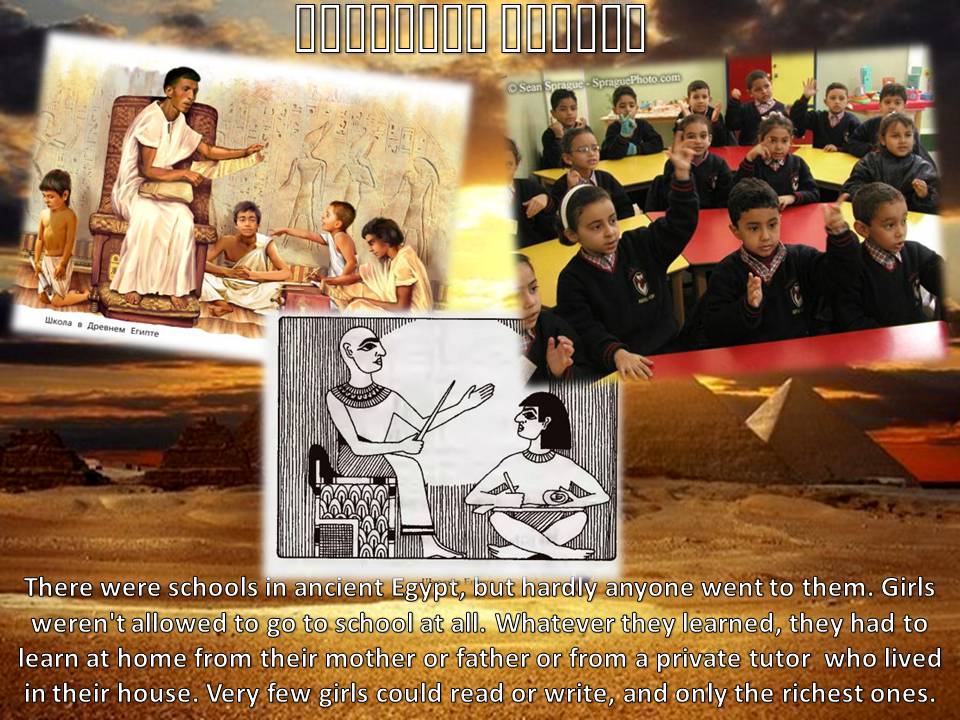
Egyptian School
There were schools in ancient Egypt, but hardly anyone went to them. Girls weren't allowed to go to school at all. Whatever they learned, they had to learn at home from their mother or father or from a private tutor who lived in their house. Very few girls could read or write, and only the richest ones.
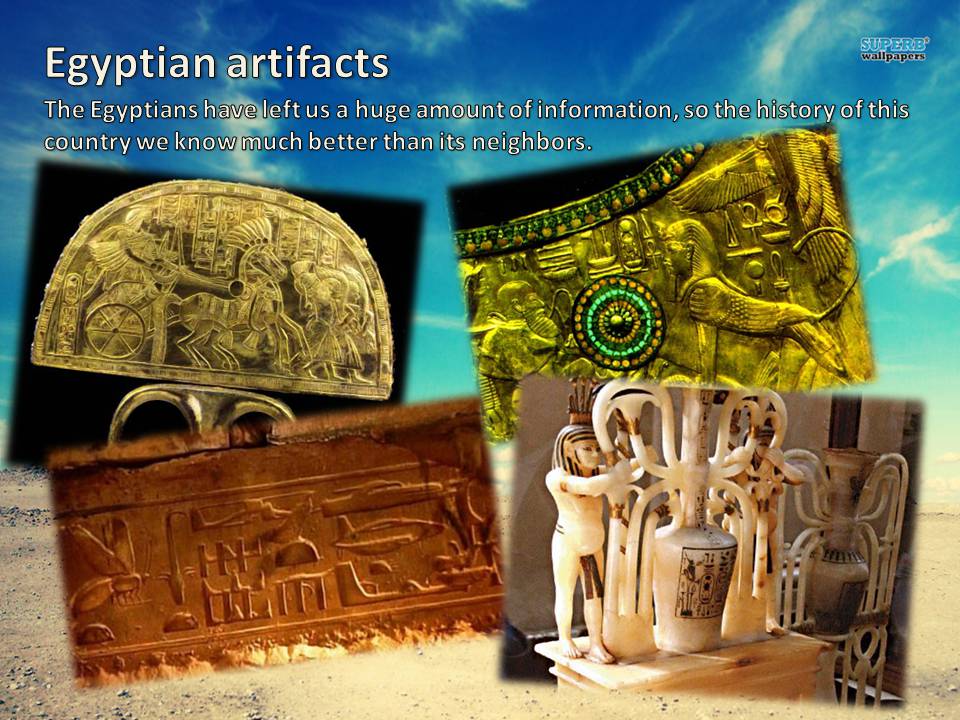
The Egyptians have left us a huge amount of information, so the history of this country we know much better than its neighbors.
Egyptian artifacts
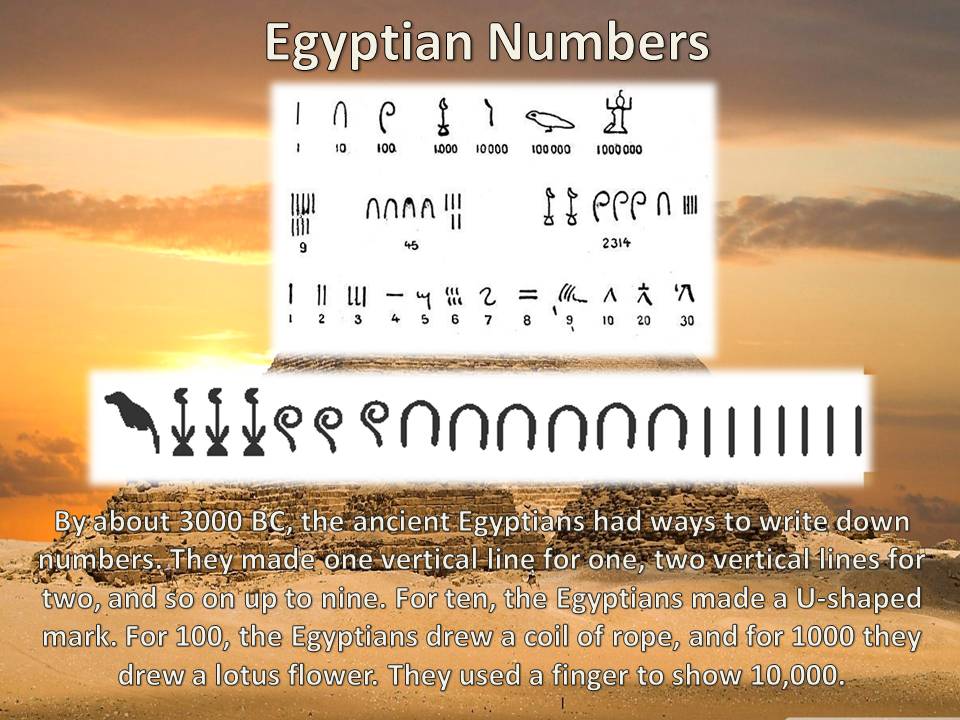
Egyptian Numbers
By about 3000 BC, the ancient Egyptians had ways to write down numbers. They made one vertical line for one, two vertical lines for two, and so on up to nine. For ten, the Egyptians made a U-shaped mark. For 100, the Egyptians drew a coil of rope, and for 1000 they drew a lotus flower. They used a finger to show 10,000.
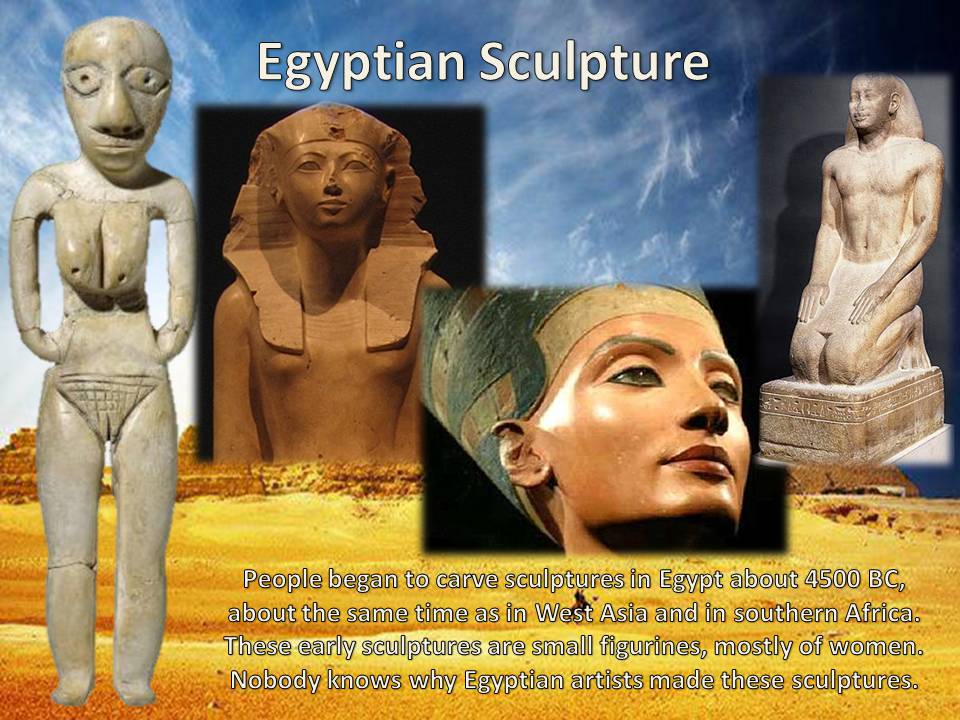
Egyptian Sculpture
People began to carve sculptures in Egypt about 4500 BC, about the same time as in West Asia and in southern Africa. These early sculptures are small figurines, mostly of women. Nobody knows why Egyptian artists made these sculptures.
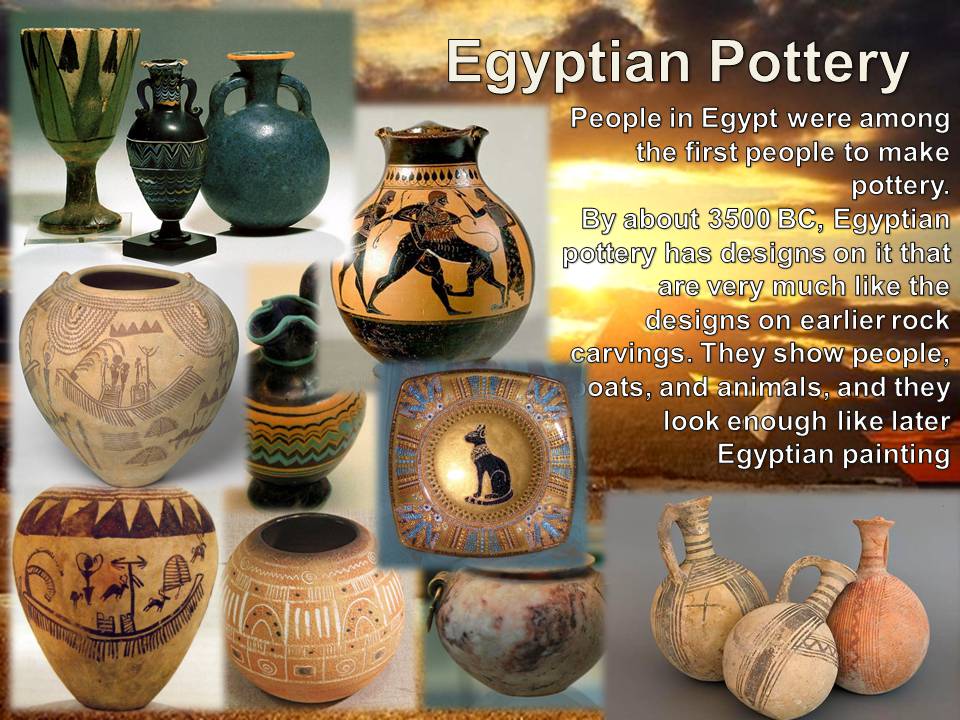
Egyptian Pottery
People in Egypt were among the first people to make pottery.
By about 3500 BC, Egyptian pottery has designs on it that are very much like the designs on earlier rock carvings. They show people, boats, and animals, and they look enough like later Egyptian painting
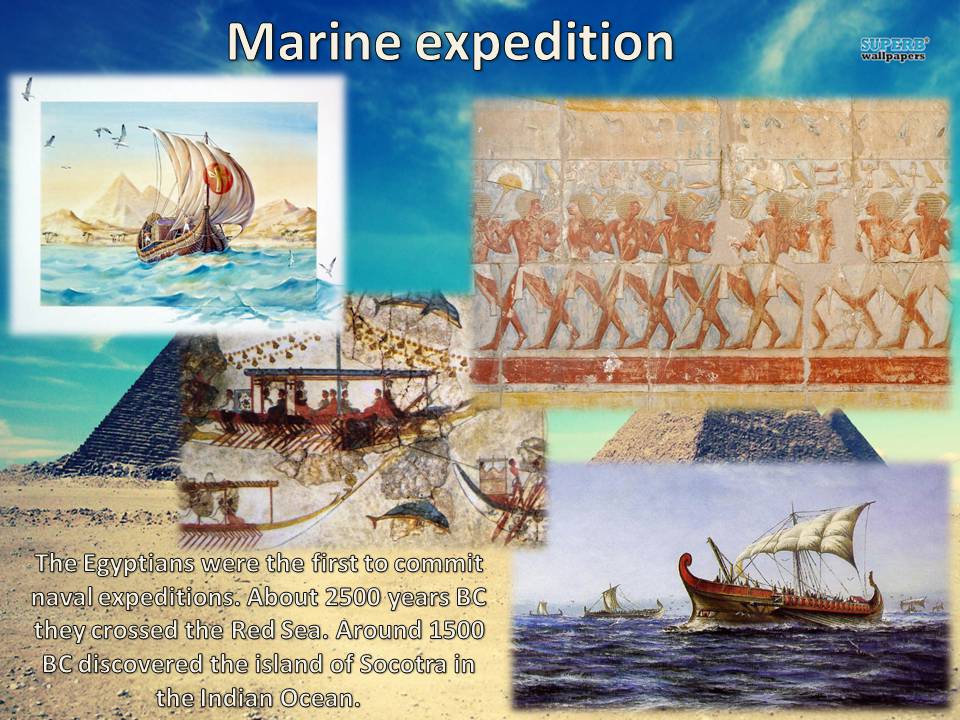
Marine expedition
The Egyptians were the first to commit naval expeditions. About 2500 years BC they crossed the Red Sea. Around 1500 BC discovered the island of Socotra in the Indian Ocean.
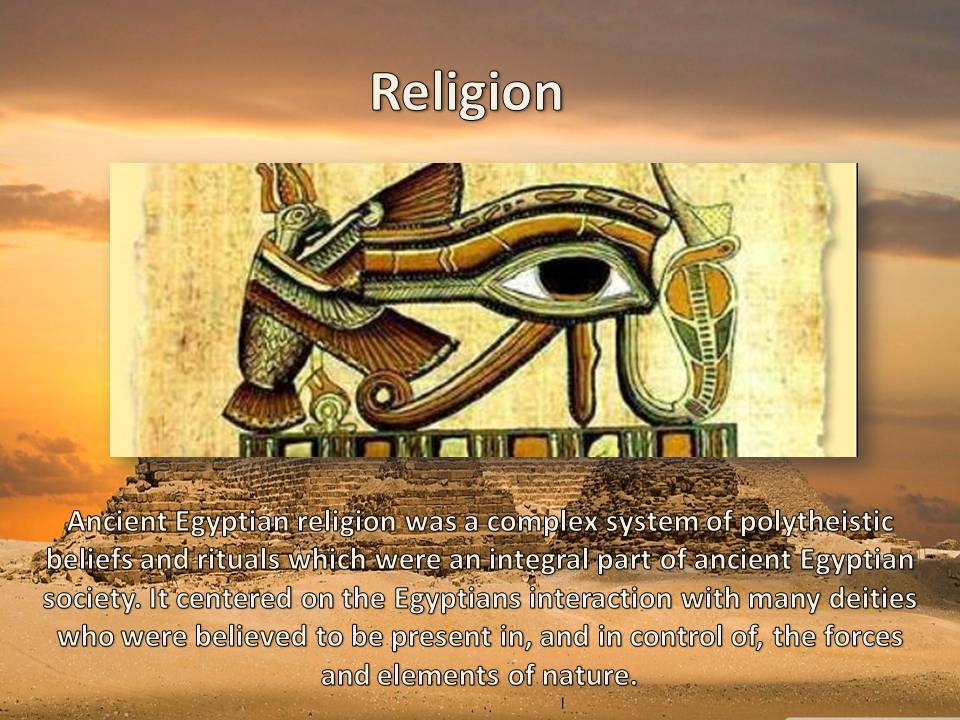
Religion
Ancient Egyptian religion was a complex system of polytheistic beliefs and rituals which were an integral part of ancient Egyptian society. It centered on the Egyptians interaction with many deities who were believed to be present in, and in control of, the forces and elements of nature.
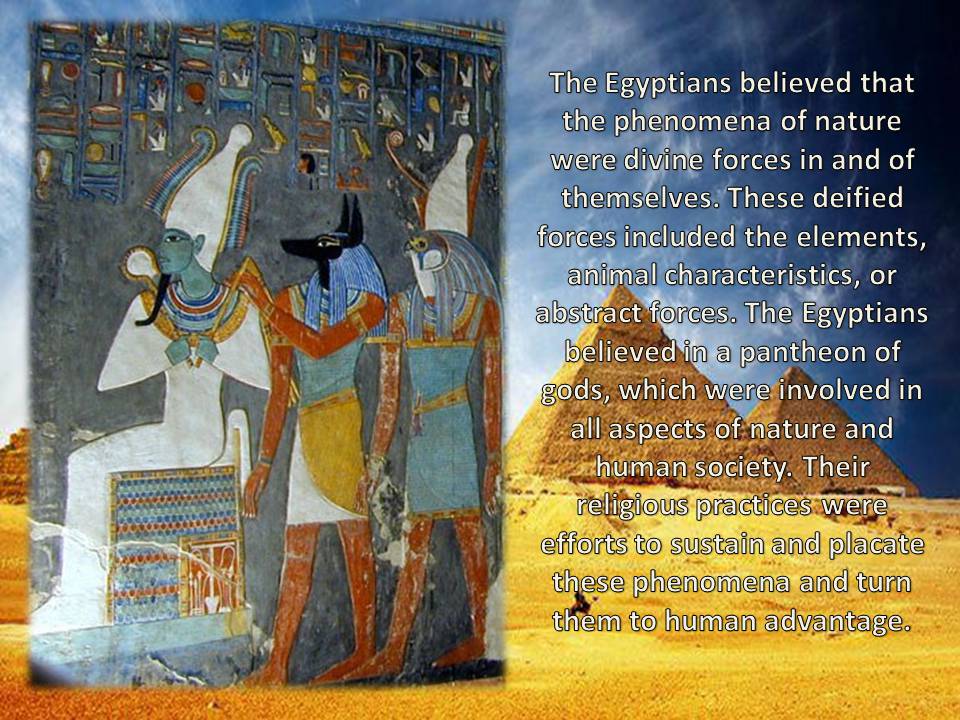
The Egyptians believed that the phenomena of nature were divine forces in and of themselves. These deified forces included the elements, animal characteristics, or abstract forces. The Egyptians believed in a pantheon of gods, which were involved in all aspects of nature and human society. Their religious practices were efforts to sustain and placate these phenomena and turn them to human advantage.
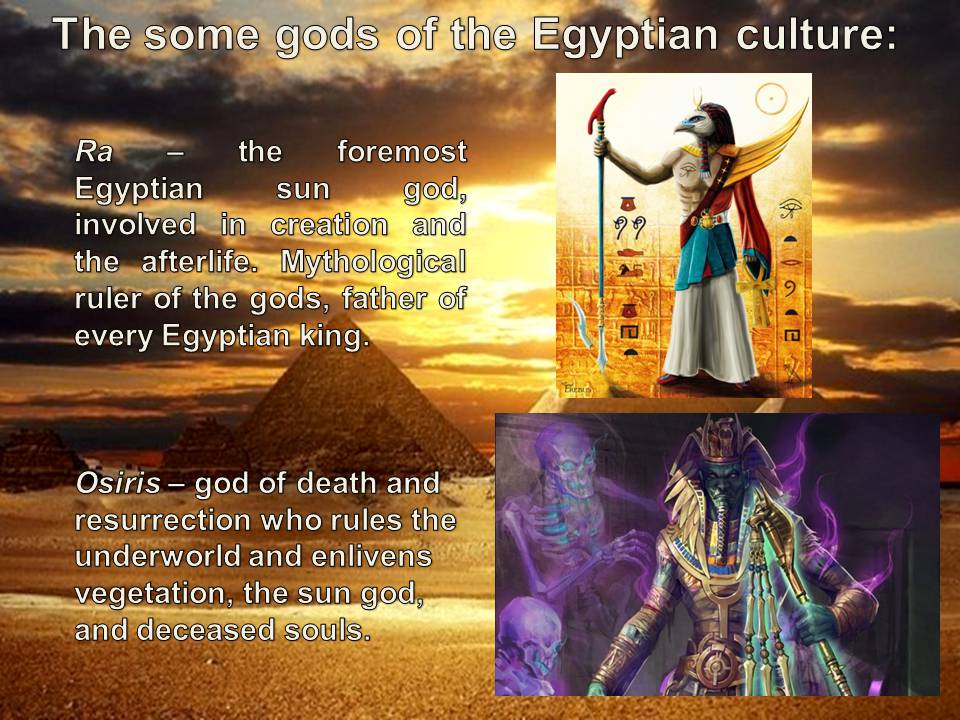
The some gods of the Egyptian culture:
Ra – the foremost Egyptian sun god, involved in creation and the afterlife. Mythological ruler of the gods, father of every Egyptian king.
Osiris – god of death and resurrection who rules the underworld and enlivens vegetation, the sun god, and deceased souls.
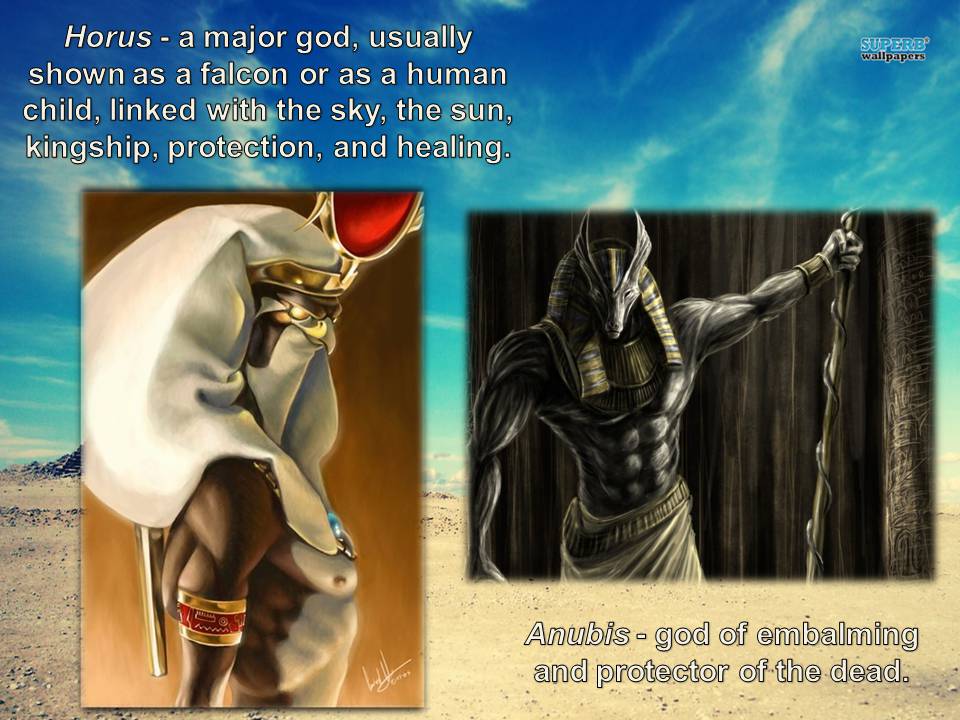
Horus - a major god, usually shown as a falcon or as a human child, linked with the sky, the sun, kingship, protection, and healing.
Anubis - god of embalming and protector of the dead.
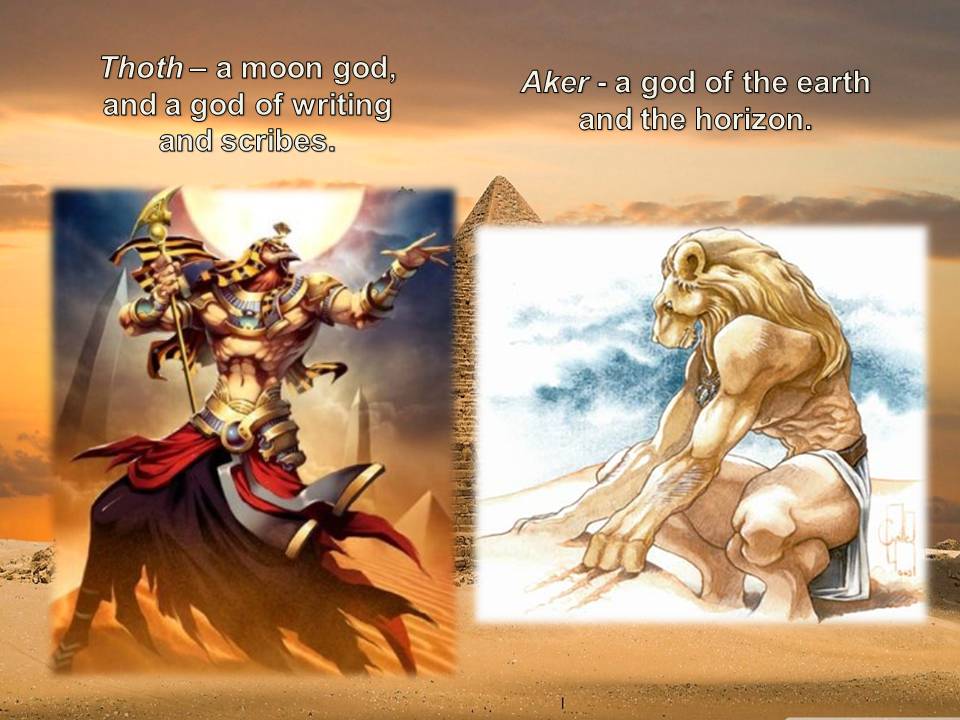
Thoth – a moon god, and a god of writing and scribes.
Aker - a god of the earth and the horizon.
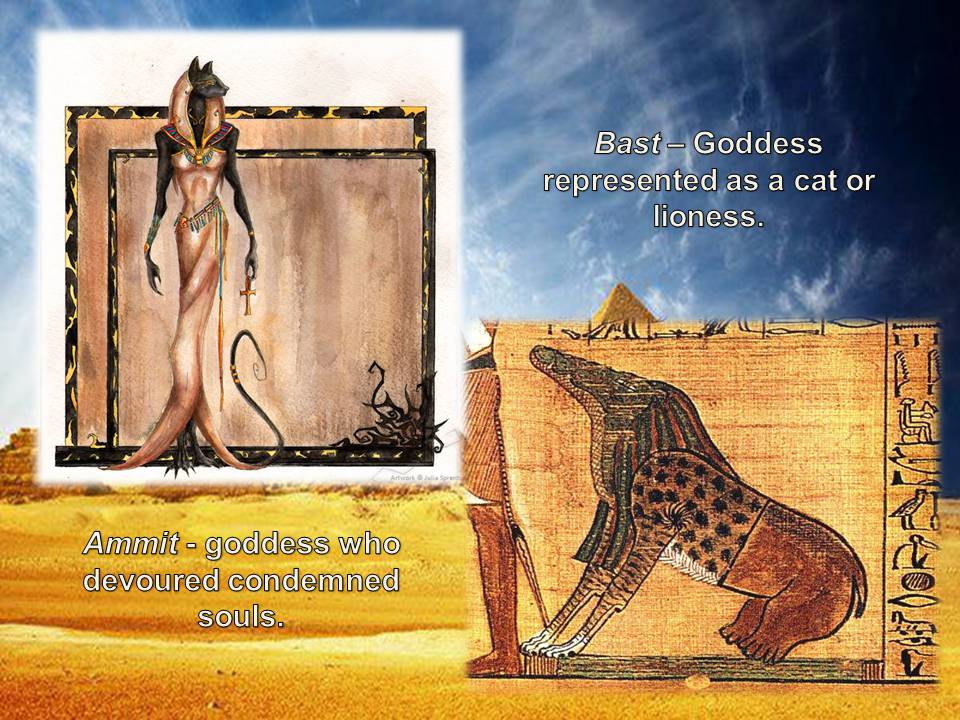
Bast – Goddess represented as a cat or lioness.
Ammit - goddess who devoured condemned souls.
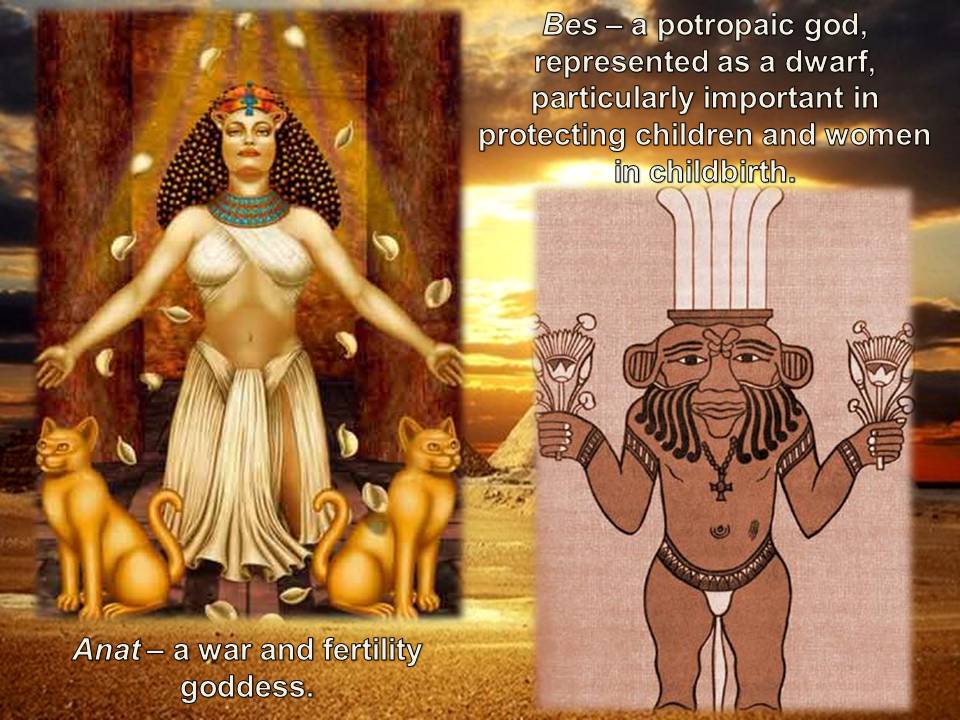
Anat – a war and fertility goddess.
Bes – a potropaic god, represented as a dwarf, particularly important in protecting children and women in childbirth.
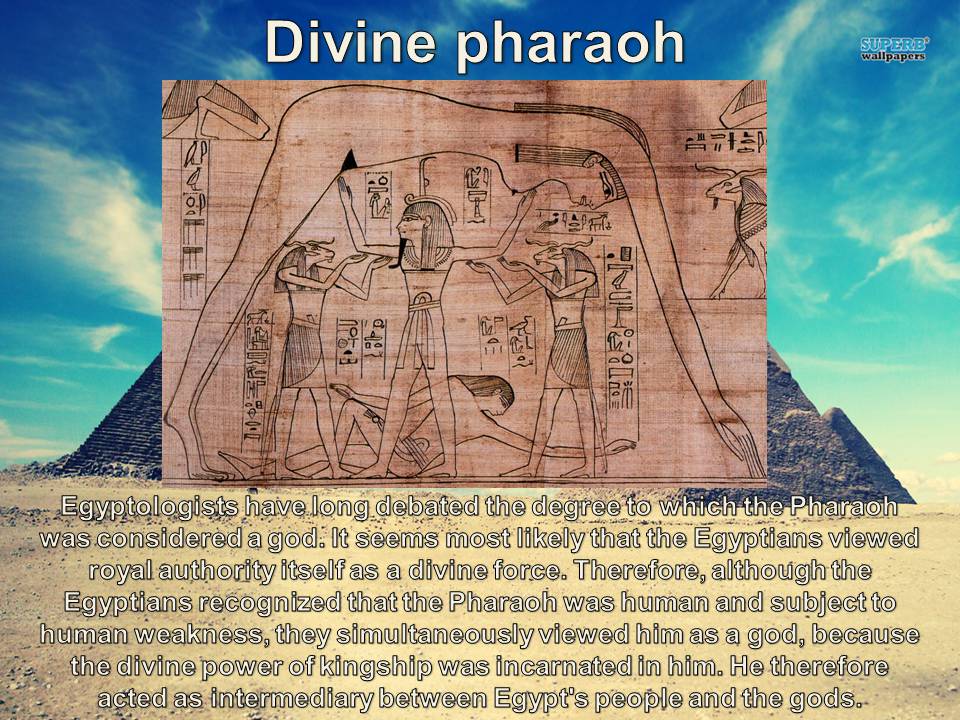
Divine pharaoh
Egyptologists have long debated the degree to which the Pharaoh was considered a god. It seems most likely that the Egyptians viewed royal authority itself as a divine force. Therefore, although the Egyptians recognized that the Pharaoh was human and subject to human weakness, they simultaneously viewed him as a god, because the divine power of kingship was incarnated in him. He therefore acted as intermediary between Egypt's people and the gods.
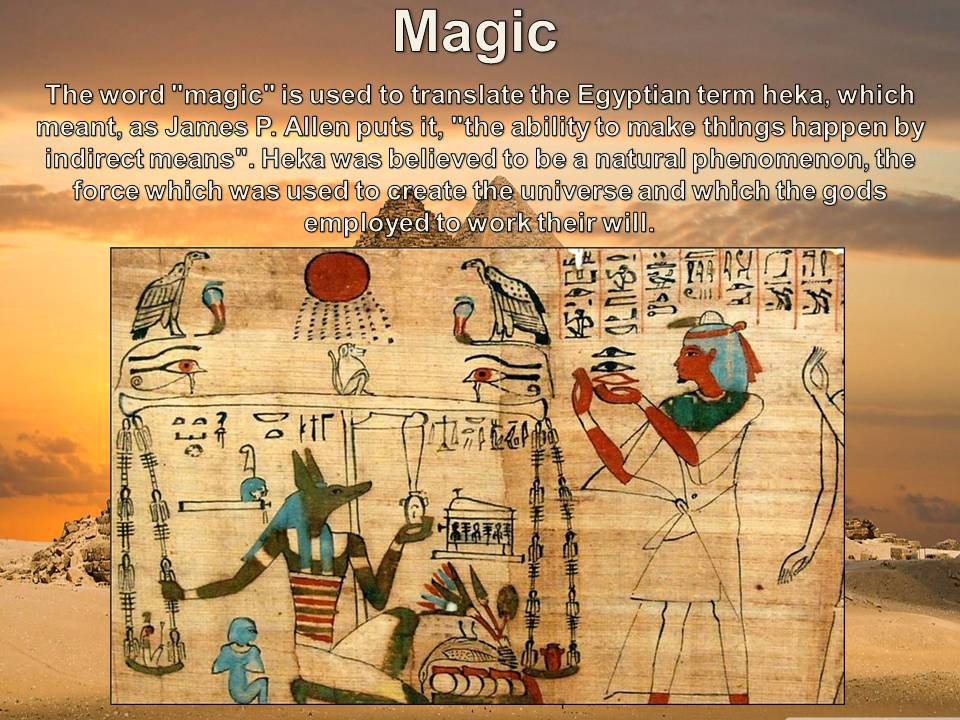
Magic
The word "magic" is used to translate the Egyptian term heka, which meant, as James P. Allen puts it, "the ability to make things happen by indirect means". Heka was believed to be a natural phenomenon, the force which was used to create the universe and which the gods employed to work their will.
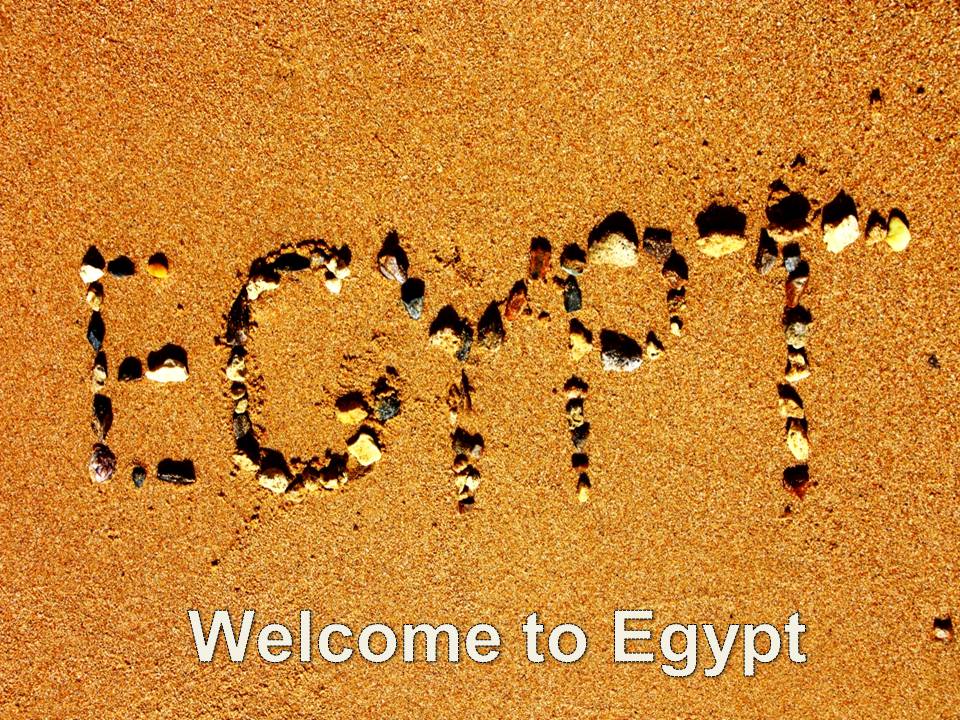
Welcome to Egypt